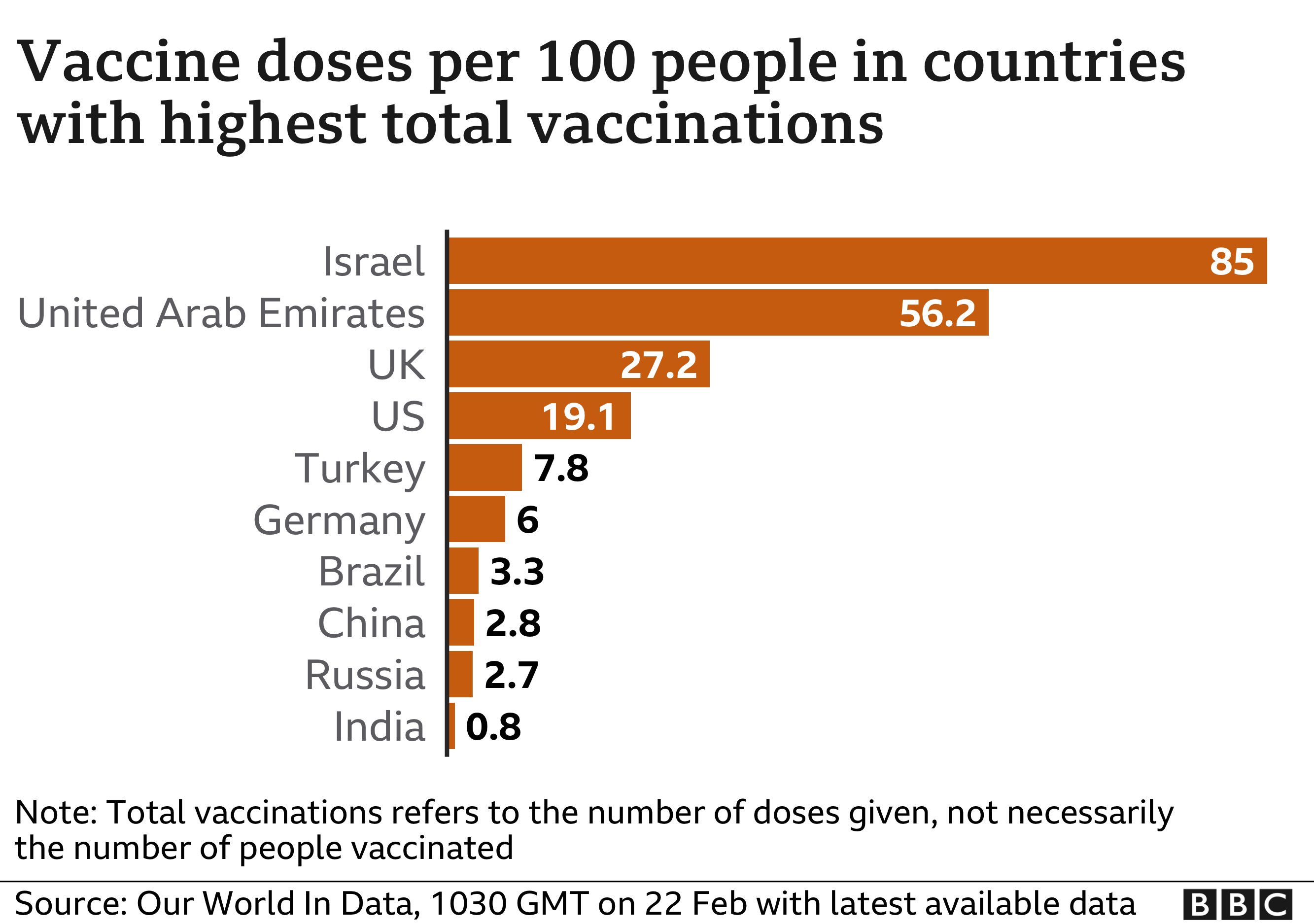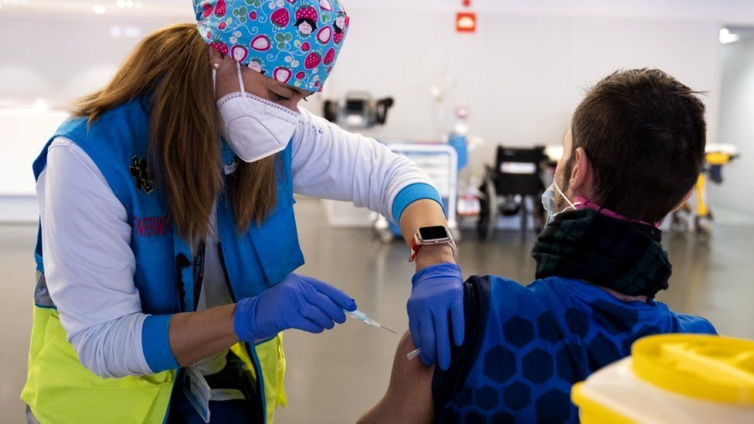Greece and Austria are urging other EU states to adopt coronavirus vaccination "passports" which could help revive Europe's stricken tourist industry.
The idea of such a document, likely to be a certificate, would be to permit those who have been vaccinated to travel freely within the EU.
The proposal was put forward during a virtual discussion between EU leaders.
But a vaccine passport faces opposition from some of the bloc's 27 member states.
France and Germany say such documents could be premature because data on the efficacy of vaccines in preventing a person from carrying or passing on the virus is incomplete.
There are also concerns that enabling a vaccinated minority to enjoy foreign travel while others, such as young people who are not seen as a priority for inoculation, continue to face restrictions would be discriminatory.
A further complication is the rapid spread of more contagious Covid variants - the English, South African and Brazilian forms - and the possibility of future mutations. So it is more likely that people will need booster jabs to remain protected.
Greece - as well as Israel - already has digital vaccination certificates, and others such as Denmark and Sweden have talked about developing them.
Greek Deputy Prime Minister Akis Skertsos told the BBC that a common digital certificate "is not discriminatory at all". He argued that non-vaccinated tourists could also visit Greece this summer, but the procedure for them would be slower - they would have to be tested and might have to self-isolate on arrival.
Greece and Cyprus have agreed to admit Covid-negative Israeli tourists this summer - those who can prove their status with the Israeli "green" digital certificate.

Greek Tourism Minister Harry Theocharis said a similar deal could be reached with the UK. However, the UK government has not yet approved any vaccination certificate, nor has it given the go-ahead for foreign holidays.
Greek tourism slumped disastrously last year because of the pandemic. Its revenues fell to €4bn (£3.5bn; $5bn), from €18bn in 2019, Reuters news agency reports. Tourism makes up about a fifth of the Greek economy, employing one in five workers.
Austrian Chancellor Sebastian Kurz tweeted that "we're advocating a digital Green Pass, like Israel's".
"That should allow you to prove, on your mobile phone, that you've been tested, inoculated or have recovered [from Covid]. Our goal: to avoid a lengthy lockdown and finally enable freedom to travel again in the EU, and freedom to enjoy events and cuisine."
As some EU countries now struggle with a third wave of the virus there are tensions over unilateral border restrictions. Germany is the latest to have received a complaint from the European Commission, since it imposed new police checks on the Czech and Austrian borders.
During the virtual meeting on Thursday, EU leaders also discussed how to address concerns over the slow vaccine rollout that has been widely criticised.
The Commission - the EU executive - has been under fire over its vaccine procurement strategy. It got into a row with AstraZeneca, because the Anglo-Swedish drug firm fell far short of the first-quarter delivery target.
Some member states have also implied that the AstraZeneca vaccine is somehow inferior to others - French President Emmanuel Macron said at one point that it might be "quasi-ineffective" in the over 65s, without offering any evidence.
This has reportedly led to issues of authorities in some countries, such as Italy, reluctant to use supplies of the drug.
The Commission still aims to get at least 70% of adults vaccinated in the bloc by mid-September. But so far, the total vaccinated is below 5%.
The EU is desperately seeking ways to increase vaccine supplies and improve its ability to track new variants, BBC Europe correspondent Kevin Connolly reports. But it is pursuing policies that might pay off in months or years, when voters want answers in days or weeks, he says.
Latest Stories
-
Ebenezer Ahumah Djietror appointed as new Clerk to Parliament
10 minutes -
Actress Benyiwaa of ‘Efiewura’ TV series dead
40 minutes -
Ashanti Regional Chief Imam dies at age 74
1 hour -
Africa Arts Network calls for tax reform to save Ghana’s theatre industry
1 hour -
SSTN Ghana Chapter reaffirms commitment to economic growth under new leadership
1 hour -
Inlaks strengthens leadership team with key appointments to drive growth across sub-Saharan Africa
2 hours -
Green Financing: What Ghana’s Eco-startups need to know
3 hours -
CHAN Qualifiers: Amoah confident of beating Nigeria
3 hours -
Governments deprioritising health spending – WHO
3 hours -
Lordina Foundation brings Christmas joy to orphans
3 hours -
Yvonne Chaka Chaka to headline ‘The African Festival’ this December
3 hours -
Nigerian man promised pardon after 10 years on death row for stealing hens
3 hours -
Patrick Atangana Fouda: A Hero in the fight against HIV passes away
3 hours -
MGA Foundation deepens support for Potter’s Village
3 hours -
Galamsey: One dead, 3 injured as pit collapses at Nkonteng
4 hours

